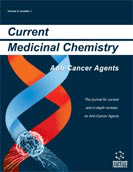Abstract
A number of anticancer drugs exert their effect by causing DNA damage and subsequent apoptosis induction. Most anticancer drugs are known to cause severe side effects. Nontoxic amplification of DNA-cleaving activity of anticancer drugs would enable to reduce drug dose and side effects, leading to development of effective chemotherapy. As a method to approach new cancer chemotherapy, we have investigated the enhancing effects of DNA-binding ligands (“amplifiers”), especially minor groove binders and intercalators, on anticancer drug-induced apoptosis and DNA cleavage, using human cultured cells and 32P-labeled DNA fragments obtained from the human genes. We have demonstrated as follows; a) DNA-binding molecules (unfused aromatic cations, distamycin A and synthtic triamides) induced amplification of bleomycin-induced DNA cleavage and apoptosis; b) a minor-groove binder distamycin A enhanced duocarmycin A-induced DNA cleavage; c) actinomycin D altered the site specificity of neocarzinostatininduced DNA cleavage and distamycin A enhanced C1027-induced apoptosis. The mechanism of amplification of DNA cleavage can be explained by assuming that binding of amplifier changes the DNA conformation to allow anticancer drug to interact more appropriately with the specific sequences, resulting in enhancement of anticancer effect. The study on amplifiers of anticancer agents shows a novel approach to the potentially effective anticancer therapy.
Keywords: amplifier, anticancer drug, dna damage, apoptosis, dna-binding compound, minor-groove binder, bleomycin, enediyne
 6
6

















